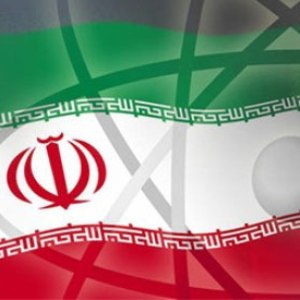Recession in Iran’s Nuclear Activities
By Sadegh Rabbani, former Vice President of Iran’s Atomic Energy Organization

Last Tuesday in Paris IAEA Chairman Mohammad ElBaradei said that Iran has not increased the number of its centrifuges, a positive sign and a political decision according to ElBaradei. Comment by Sadegh Rabbani, former Vice President of Iran’s Atomic Energy Organization
Without formal announcement, Tehran has decelerated its nuclear activities. One likely explanation for this is Tehran’s unwillingness to make its uranium enrichment halt public, which equates yielding to UNSC resolutions. Officially accepting the resolutions imposed by United Nations Security Council means waiting for other resolutions which lift the sanctions; a tough process indeed, when some veto-wielding members of the council are not in good terms with Iran.
Even with a possibility of reconciliation between Tehran and Washington in future, other permanent members of the council may be reluctant to aid Iran and try to block the approval of any further resolution in order to gain their desired interests. Hence, it seems that Iran has halted uranium enrichment, not officially however, so that the positive measure would be mentioned in ElBaradei’s forthcoming report. Addressing Iran’s cooperation in the report would pave to way to lifting sanctions.
Iran wants to turn the wind to its favor and pave the wave for another term of presidency for Ahmadinejhad. However, West’s inclination to cooperate with the present government and to follow nuclear talks with its negotiators is a matter of doubt. It seems that West is trying to postpone nuclear talks until Iran knows its new president, and they know who they have to face at table.
Without formal announcement, Tehran has decelerated its nuclear activities. One likely explanation for this is Tehran’s unwillingness to make its uranium enrichment halt public, which equates yielding to UNSC resolutions. Officially accepting the resolutions imposed by United Nations Security Council means waiting for other resolutions which lift the sanctions; a tough process indeed, when some veto-wielding members of the council are not in good terms with Iran.
Even with a possibility of reconciliation between Tehran and Washington in future, other permanent members of the council may be reluctant to aid Iran and try to block the approval of any further resolution in order to gain their desired interests. Hence, it seems that Iran has halted uranium enrichment, not officially however, so that the positive measure would be mentioned in ElBaradei’s forthcoming report. Addressing Iran’s cooperation in the report would pave to way to lifting sanctions.
Iran wants to turn the wind to its favor and pave the wave for another term of presidency for Ahmadinejhad. However, West’s inclination to cooperate with the present government and to follow nuclear talks with its negotiators is a matter of doubt. It seems that West is trying to postpone nuclear talks until Iran knows its new president, and they know who they have to face at table.

